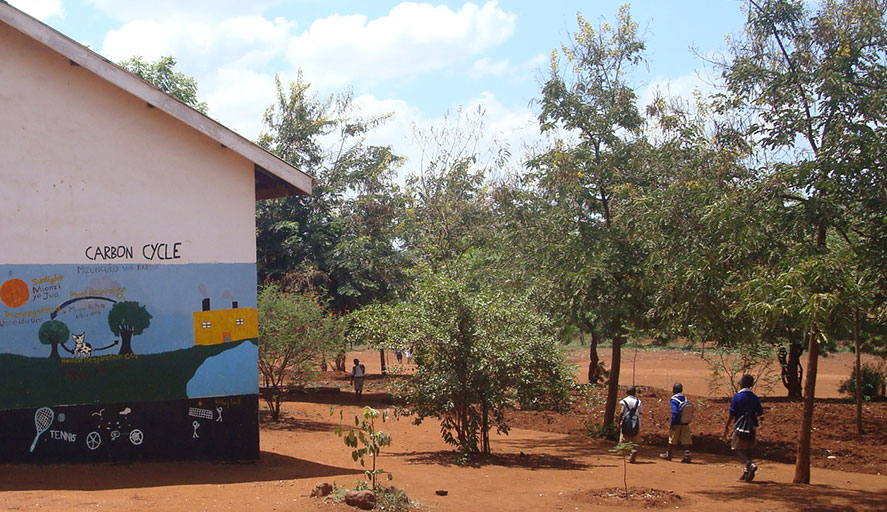Who We Are
Toa Nafasi is a program (not a separate center or school) and we work within the existing public school system in Tanzania, where the majority of children are enrolled. We work children 6 – 13 years old providing them an inclusive education platform and comprehensive body safety education and support services.
We strive to improve learning outcomes for all students, but our focus is on the most vulnerable learners in the classroom: those with learning difficulties, and those with experiences of trauma. We do not deviate from the national syllabi mandated by the Ministry of Education, but rather ensure that everyone in the class has an equal opportunity to learn, be safe and get support they need.
Toa Nafasi tutors are generally a cohort of young adults from the village who have struggled to find gainful employment, but who have committed to working with the foundation. They are taught a few simple yet effective teaching methodologies for slow learners and at risk of abuse and violence children by our consultants. Employment opportunities like these are an additional benefit of Toa Nafasi in the local community.
The Challenge
Children from low income families aged 6 to 13 in Tanzania are less likely to achieve minimum proficiency in reading, writing and arithmetic. This is attributed to physical, emotional, psychological and health challenges such as abuse and violence which are common place for children from underserved communities. These challenges also cause developmental impairments and certainly affect children learning outcomes.
In schools, classrooms have high pupil-teacher ratio, high pupil-qualified teacher ratio and teachers are unable to attend to needs of children with learning difficulties and heightened risks of violence. At homes, parents and caregivers of these children rarely receive needed support from community and government.
The education system does not prioritize early diagnosis of learning difficulties, creating safe and learner friendly spaces, and additional support for child, parents and caregivers. Primary schools build the foundations and set children up for success in education and in life. The schools and surrounding communities must be equipped to accommodate the individual learning needs of each child so that they are able to fully participate in and benefit from their education.
Investment in an early childhood safe and inclusive schools program builds the academic, social-emotional and economic foundation for the child and the community.
What We Do
The Toa Nafasi model is a three-tiered approach of assessment, referral, and curriculum modification that has enabled significant development in students found to be flagging and at risk of abuse/violence.
In order to provide the best services we can and to keep our activities running smoothly, we also invest highly in training our tutors and enhancing community relations.

